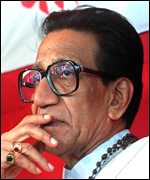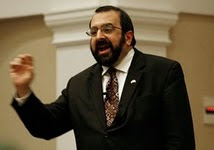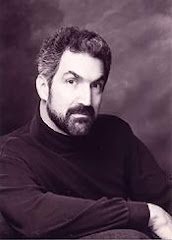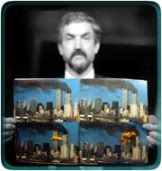Today marks the 1st anniversary of the London terrorist attacks that claimed at least 50 lives. Among those injured were Australians traveling and working in London. The victims included at least 5 people of nominally Muslim background.
The bombing was believed to be the work of home-grown terrorists, young English boys from Pakistani and Jamaican backgrounds disillusioned and depressed. According to official UK government and police reports, it is unclear whether the boys were directly linked to an overseas terrorist outfit. What is clear is that at least some of the boys were influenced by Islamist pan-nationalist literature and lecturers.
The London bombing led to a complete re-think of security and anti-terrorism policies. No longer was terrorism just something that happened when overseas extremists were sent on a mission to a Western country. Rather, terrorism could be home-grown.
The boys involved in the London attacks were part of what Peter Costello accurately described in his February speech to the Sydney Institute as living “in a twilight zone where the values of their parents old country have been lost but the values of the new country not fully embraced.”
At least 40% of Aussie Muslims were born and/or brought up in Australia. They are as Australian as former English cricketing captain Nasser Hussein is English. Or as international French soccer player Zinedin Zidane is French.
Most of us handle swinging between competing cultural pendulums quite well. Our experience is little different to that of children of migrants from other ethnic and religious groups. We all have layers of identity, and not all of us regard our religious faith as the primary source of our identity.
Which makes many Muslims shake their heads and wonder when they read of the Cultural Revolution currently being promoted in the pages of Quadrant and The Australian.
As someone who regards himself as a conservative, I find it disturbing that other conservatives would attempt to overturn over 3 decades of political and social consensus expressed in the term “multiculturalism”.
The Oz, in particular, has been promoting pseudo-conservative monocultural policy, with its editorials and many of its regular and occasional contributors lobbying for the overturn of Australia’s multicultural status quo.
Like most revolutions, this monocultural revolution manufactures an enemy by attributing mythologically monolithic characteristics to an otherwise disparate group. 7/7 provided the pseudo-conservatives with a convenient enemy to manufacture – Muslim minorities, particularly home-grown Muslim youth.
The constantly recurring myth in much pseudo-conservative writing is the existence of a monolithic Muslim “culture”. In the UK, where the overwhelming majority of Muslim migrants are from the Indian sub-continent, it might be legitimate to speak of a singular culture dominating the British Muslim landscape.
When applied to Australia, the true extent of the myth becomes apparent to all but the most jaundiced and/or senile commentators. Aussie Muslims migrated to Australia from over 60 different countries (many from countries without Muslim majorities) and speak over 200 languages.
I can say with great confidence that, culturally speaking, my Delhi-born parents have more in common with a Hindu or Sikh from India than with a Muslim from Albania. My South African Muslim friends have more in common with South African Jews than with Muslims from Malaysia.
Culture is a complex phenomenon. Islam, like Christianity, is an international religious movement. I doubt there is a major city in the world which does not have a single Muslim resident. To speak of Muslim culture is as meaningless as speaking about Catholic culture.
Rupert Murdoch and the editors of The Oz should know this to be the case. Indeed, Richard Kerbaj (a journalist of Lebanese Druze roots) regularly reports on the various ethnic and linguistic feuds within Muslim peak bodies in Australia. Most Australian mosques are divided along ethnic, linguistic and/or sectarian lines. To speak about a monolithic Muslim culture is sheer nonsense.
Yet some people make lots of money by promoting this mythology. In August, the Centre for Independent Studies hosts journalist Mark Steyn as part of its “Big Ideas Forum”. Steyn’s biggest idea has been cited with approval by Sharon Lapkin, a writer for the Australia-Israel Review. In a piece she authored for FrontPageMag.com immediately after the Cronulla riots, Lapkin remarks:
“Everywhere in the world, Muslims are in conflict with their neighbours. And as Mark Steyn recently said, every conflict appears to have originated by someone with the name of Mohammed.”
The national chairman of the Australia-Israel Jewish Affairs Council (AIJAC) is respected Melbourne lawyer Mark Leibler. Mr Leibler is also co-chair of Reconciliation Australia. He rightly condemned comments made by alleged conservatives about Aboriginal culture during a speech to the Sydney Institute on 29 May 2006.
On that occasion, he remarked:
“To suggest that rape and pedophilia are part of Aboriginal culture is defamation. Whether it‘s used as an excuse by perpetrators or a cop-out by non-Indigenous Australians who find this explanation easier than facing up to their own responsibilities, it is slanderous and it is wrong.”
Mr Leibler’s remarks would be just as applicable. I would like to think Mr Leibler would find Ms Lapkin’s remarks as equally slanderous and wrong.
Yet such slanders appear regularly in the op-ed pages of major newspapers, especially those owned by the American ex-Australian Rupert Murdoch. They are repeated by media moguls and allegedly conservative politicians.
Fear and hysteria about the alien monolithic Muslim “other” might sell newspapers and win votes in the short term. But to use the myths underlying such fear are used as excuses to overturn over 3 decades of multicultural consensus is the height of folly.
And when such myths are used to marginalize an entire faith-community, it gives good grounds for the likes of Usama bin Ladin and Abu Bakar Basyir to claim the war on terror is really a war on Muslims.
© Irfan Yusuf 2006


 Bal Thackeray
Bal Thackeray








